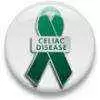-
Welcome to Celiac.com!
You have found your celiac tribe! Join us and ask questions in our forum, share your story, and connect with others.
-
Celiac.com Sponsor (A1):
Celiac.com Sponsor (A1-M):
-
Get Celiac.com Updates:Support Our Content
Storing Flour
-
Get Celiac.com Updates:Support Celiac.com:
-
Celiac.com Sponsor (A17):
Celiac.com Sponsor (A17):
Celiac.com Sponsors (A17-M):
-
Recent Activity
-
- xxnonamexx posted a topic in Post Diagnosis, Recovery & Treatment of Celiac Disease0
Fermented foods, Kefir, Kombucha?
I have read fermented foods like sauerkraut, pickles, Kefir, Kombucha are great for gut health besides probiotics. However I have searched and read about ones that were tested (Kefir, Kombucha) and there is no clear one that is very helpful. Has anyone take Kefir, Kombucha and noticed a difference in gut health? I read one is lactose free but when tested... -
- SamAlvi replied to SamAlvi's topic in Celiac Disease Pre-Diagnosis, Testing & Symptoms7
High TTG-IgG and Normal TTG-IgA
Thanks again for the detailed explanation. Just to clarify, I actually did have my initial tests done while I was still consuming gluten. I stopped eating gluten only after those tests were completed, and it has now been about 70 days since I went gluten-free. I understand the limitations around diagnosing NCGS and the importance of antibody testing... -
- knitty kitty replied to lizzie42's topic in Post Diagnosis, Recovery & Treatment of Celiac Disease6
Son's legs shaking
Blood tests for thiamine are unreliable. The nutrients from your food get absorbed into the bloodstream and travel around the body. So, a steak dinner can falsely raise thiamine blood levels in the following days. Besides, thiamine is utilized inside cells where stores of thiamine are impossible to measure. A better test to ask for is the Erythrocyte... -
- lizzie42 replied to lizzie42's topic in Post Diagnosis, Recovery & Treatment of Celiac Disease6
Son's legs shaking
Neither of them were anemic 6 months after the Celiac diagnosis. His other vitamin levels (d, B12) were never low. My daughters levels were normal after the first 6 months. Is the thiamine test just called thiamine? -
- knitty kitty replied to lizzie42's topic in Post Diagnosis, Recovery & Treatment of Celiac Disease6
Son's legs shaking
Yes, I do think they need a Thiamine supplement at least. Especially since they eat red meat only occasionally. Most fruits and vegetables are not good sources of Thiamine. Legumes (beans) do contain thiamine. Fruits and veggies do have some of the other B vitamins, but thiamine B 1 and Cobalamine B12 are mostly found in meats. Meat, especially organ...
-




Recommended Posts
Archived
This topic is now archived and is closed to further replies.